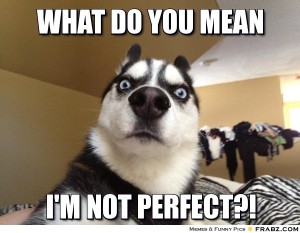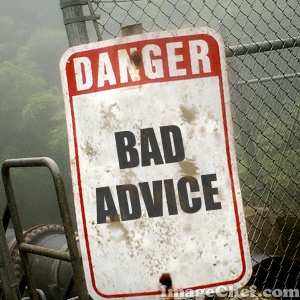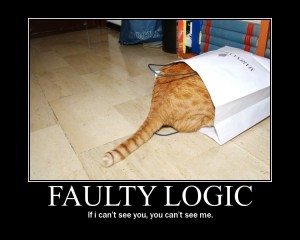It’s been a while… since the last time I wrote a blog post. But I’m not dead or anything. Just busy. But since last week, I’m also very sick. I am stuck at home, agonizing. So why not write something?
It’s been a while… since the last time I was struck so badly by microbes. Me being unable to move, my girlfriend had to call a doctor home, who prescribed a bunch of medicine including antibiotics. I was a bit surprised to be honest. If I had any energy to make small talk, I would have asked him: “Do they still work?” Antibiotics is a privilege our generation still has… the next generation on the other hand, is screwed. I’ll write a post about the ticking bomb that is the bacterial antibiotic resistance soon, but today, will be about something completely different.
I’ve been reading a lot of small literature these days. I know the term doesn’t really exist. I mean books either self-published or published by small houses… Oh, by the way I think there’s also a music band called small literature. Anyway… moving on.
It is very frustrating to buy a book and start reading it, only to see fundamental mistakes in it. As an amateur, I may commit some rather serious mistakes. At the end of the day, to me, writing is just a hobby. But once you are published, you are a professional. Your story or your voice may be interesting or not, but your craft should be flawless.
So I wanted to blow off some steam by listing some of the things that annoy me the most. Since it’s me, I made a list of seven 🙂
1. Messy point of view:
As a reader, once you point this out, the book immediately becomes unreadable. First of all, there are different types of point of view that could be used in a story. Examples:
- You may narrate the story through the eyes of the 1st person:
Very handy for writing mystery because the information is only limited to what this character sees. Much more intimate than other points of view although it can cause distraction because of the repetitive “I”
2. You may narrate the story through a 3rd person point of view:
Then your camera becomes one of your main characters and the reader experiences the story through his/her point of view.
3. And there is the omniscient point of view:
The classical literature favors this one specifically. The narrator knows everything and sees everything. He/She tells us what happens to the characters.
I sincerely think that if a writer chooses either of the points of view, they should stick to that. If you are a writer and you mix multiple points of view in the same scene, or worse, in the same paragraph, you know what? I hate you!
A small, made up example:
“Bobo couldn’t take it anymore. It was chemicals, chemicals and more chemicals, all day long. Smelly, messy and boring! His eyes shone with anger. If only the boss could accept him for his true merit.”
Do you see what’s wrong with this? I deliberately mixed up 3rd person point of view with the omniscient. Because if Bobo is the character through the eyes of whom we experience the story, then when his eyes shine with anger, he’d better be looking at a mirror! Or else, if this was meant to be an omniscient point of view, then when the author writes “boring!” (instead of saying that Bobo finds this to be boring) then it’s actually the narrator who thinks that chemicals are boring.
2. Details details details….
We are all living in the digital era and we want to read things fast in order to pass to the next thing as fast as possible. I know it is not great, but that’s how we are. In the times of the old classics, some authors were payed for the number of pages they wrote. Therefore we see long lasting descriptions of everything. In the digital era, this is unfortunately a flaw. However, when the grand masters described something, it was well done. It was beautiful. They wrote all those things that you also experienced and felt yourself, without ever being able to put words on them.
Unfortunately, some authors write as if they were payed for the number of pages they deliver and it’s not even the descriptions. Curious enough, those same authors never make that type of descriptions either. They just write every singe detail in a scene, or worse in an action. For example:
“Bobo pressed the button on his laptop and switched it on. He looked at the screen and saw that Windows was installing updates. “Damn it!” he said. He stood up and walked towards the window. He pressed on the handle with his hand and opened it. The fresh evening breeze rushed inside the room.”
OK, I know I’m exaggerating here, but it just annoys me when I see that an author worries that I’m not sharp enough to know that his character needs to actuate a handle (with his hand!) to open a window.
Unless Bobo has superpowers, we all know that he needs to press that button to switch his laptop on. And of course he needs to look at the screen before reading anything that is on it. The same goes with how he opens the damn window! I also happen to notice that the writers whom I appreciate the work, don’t linger on tags like “said”, “asked”, etc. but let’s talk about this later. Now back to our example:
“Bobo switched his laptop on. He tapped his fingers impatiently on either side of the keyboard until he read “Windows is installing updates 1/3500” Damn it! He stood up and opened the window, letting the fresh evening breeze rush inside.”
I am not a good writer either. But at least this reads more easily. Too much (deducible) details to actions is a massive deal breaker for me.
3. Inaccurate information
There’s a French author that I like a lot. She writes murder mysteries. She’s very popular. My mother in law is also a fan. But my father in law, after reading and not finishing one of her books totally said otherwise. In that particular book, at one point the characters go to the Pyrenées Mountains and pass through somewhere. The thing is, my father in law is an amateur hiker and knows these mountains amazingly well. In turns out, such a place as told in the book doesn’t exist.
People cannot write only about what they know. It would be very boring. But if you’re writing about something you don’t know, please do learn about it. In that previous example, one of my favorite authors had just been lazy and she hadn’t done the necessary research. I happen to be very bad in geography so obviously I didn’t realize it. But just with that small detail she lost another potential fan: my father in law.
If you are writing a brawling scene and you want it to be heavy in description, take a minute to watch a fight scene on YouTube. If your character needs a silencer on his handgun, don’t give him a revolver. You’ll immediately loose all the firearms geeks. Same goes with me and science, if your science is not correct, I hate you!
The worst part is, that this kind of mistake is solely due to laziness. You only see this because the author didn’t do his/her homework.
4. Characters being too perfect
Another serious deal breaker is when you have a main character who is just too perfect. This ruined very good books like Shibumi or The Name of the Wind for me. The funny thing is, in Shibumi you have a paragraph where the author actually says something like “The people who don’t want to read a book because the character is too perfect are just frustrated by their own flaws” or something. (I don’t remember the exact words because it’s been too long since I read it). So Trevanian actually knows his character is way too perfect and he’s probably been criticized over it (by his editor or his agent maybe, who knows?) but he prefers to say “f*ck it! I’ll just add this paragraph so they’ll know what I think.”
But you know what Trevanian, when your character is too perfect I cannot bring myself to care about what happens to him!
Flaws make a character interesting. Especially flaws that prevent him from achieving his goal. Because then you can have an interesting character arc through the story. If your character is too perfect to begin with, he won’t arc.
5. Telling, not showing
We all hate things to be spelled out to us. Especially when we read a story, we rather want things to be shown to us. Telling, instead of making the effort to show, is a rather newbie mistake but you’d be surprised how often I stumble on in. Example (and Bobo is back!):
“Bobo was angry. The formula he was looking for wasn’t in this book either.”
This is telling.
“Bobo slammed the book on the table. The formula he was looking for wasn’t in that one either.”
Instead of telling how Bobo feels, we show him slamming the book, therefore he must be angry.
6. Filtering
Filtering is when you filter your narration (duh!) through the senses of your characters by using words like saying, feeling, hearing, thinking, tasting, knowing, etc. I briefly mentioned this in the 2nd element of this list. Here is another example:
“This may be a different molecule but it has the exact same effect, I promise!” Bobo said. He had started to feel scared. He glanced over his boss’ shoulder and saw that the two bodyguards were eyeing him solemnly. He saw one of them putting his hand somewhere inside his vest, probably gripping his gun. He thought “Oh boy! Now I am screwed!”
To be honest, I am very easily distracted by all those filtering words. I cannot get into the action because each time they remind me of the presence of the author. Instead:
“This may be a different molecule but it has the exact same effect, I promise!” Bobo’s voice shook. A drop of cold sweat trailed down his forehead. He glanced over his boss’ shoulder, the two bodyguards were eyeing him solemnly. One of them put his hand somewhere inside his vest, probably gripping a gun. Oh boy! Now I am screwed!
Now, we are in the action 🙂 Because seriously, filtering puts a distance between us, the readers, and the story.
7. Poor structure
The last element of the list includes every flaw that has to do with scene and structure. Therefore it is a huge element. I don’t think I understand scene and structure completely either but in general, we like stories when some big stuff is at stakes, where there are scary and bad-ass villains and the hero needs to overcome obstacles and become a better person in the process. But just before our heroes triumph, things need to go bad, even worse than it was at the beginning. Then they win, and we are happy, or they loose but they achieved at least something (so we are not frustrated).
Saying this is easy, but executing it correctly? Well…
Stephen King has a book on how to write, where he says something like “When you have an idea, just sit down and start writing.” I think this is the worst advice you can give to a newbie. It’s as if you asked Mozart’s advice on how to learn to play the piano and he said “Just sit in front of it and play.”
I’m sure this works perfect for him but he is Stephen freaking King! He is already a story master. I think the newbies who took his advice must be busy re-writing their tenth draft trying to get some hint of a structure to it.
Often in romance I see examples of poor structure. The story is based on “Will the two main characters get together?” and once they do, the author desperately tries to meet up the 64,000 minimum word count of the genre: the couple decides to take things slowly for no reason whatsoever, or since there’s no real villain the author throws contrived, eye-roll worthy obstacles to their happy ending which are nothing but cliché misunderstandings wherein one or both of our dear and exasperating protagonists flee one another in weepy, immature anger instead of communicating like grown ups, etc, etc.
When I read this, I feel conned. Because I paid to read a story, where there is no actual “story”…
And this ends our list. Well, now that I have got this out of my system, I feel better. I would definitely feel better once I will get all those silly microbes out of my system too!






Great post!! I must admit I’ve done a few of these…
Sorry!! (feels small)
LikeLiked by 1 person
Thank you so much! But please don’t feel small! I make those mistakes too 😀
LikeLike
Feel better soon! (and of course great post!)
LikeLiked by 1 person
Thank you my friend 🙂
LikeLiked by 1 person